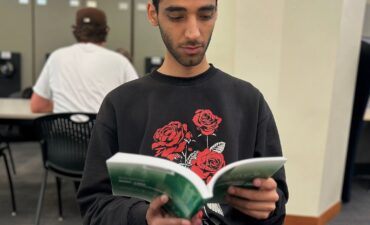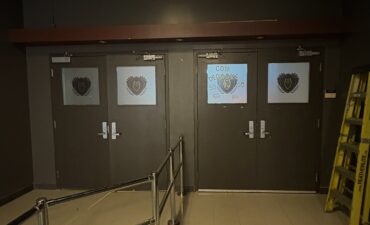Farmers have a lot to be concerned with these days—scorching heatwaves, fluctuating fertilizer prices and the advancement of farming equipment.
The shift is clear in the Kronau area to lifetime farmers like 83-year-old Ron Euteneier and 54-year-old Armond Gervais. The two men shared a few fond memories and discussed some of the constantly changing avenues over the years, such as equipment and the weather.
Euteneier started farming in 1958 and retired five years ago. He ran a mixed farm, but his largest crop was grain. According to Statistics Canada, canola, grain and lentils make up the bulk of Saskatchewan’s crops.
One of the most substantial changes Euteneier witnessed over the years is the price of equipment.
“You could probably buy a new tractor at that time for a 100 horsepower tractor, it would probably cost you about $20,000-22,000,” said Euteneier.
“The new ones now they’re bigger than that, but they run you about $600,000-$700,000.”
In fact, tractors were even cheaper than Euteneier thought back in 1958, they cost only about $2,000.
The ability to fix these more expensive tractors is another concerning issue. More and more it is becoming increasingly difficult for farmers to fix their own tractors because of the advancing technology involved, “At one time, you could basically fix your equipment with a plyer, a wrench, and a screwdriver,” said Euteneier. “Now it all basically operates by electronics and people don’t have the capability or the knowledge to do it on the farm.”

The only way for a lot of farmers to fix their equipment is to either send it away to the dealer or have someone sent out to fix it.
Gervais, who has also been farming his entire life near Kronau and is still farming believes that the technology in equipment has been around long enough for him to be used to it. “Any of the software, you can’t fix that,” said Gervais.
“I mean, they come out and they can diagnose what’s wrong with the combine from the dealership, while the combine is running in the field.”
Another topic of discussion was how the heatwave affected crops this year and what that meant for years to come.
Euteneier believes the heatwave could be to blame for some of the poor crop yields this harvest and that it will be a problem farmers face in the future, especially if climate change continues to worsen.
The province’s crop report tends to agree with Euteneier. According to this year’s crop report, “Overall provincial yields are well below average, even areas that received timely rains reported below-average yields. Yields were impacted by the extreme drought, heat stress, wind, hail and grasshoppers.”
Gervais believes this is something farmers have always faced and there have been dry and hot periods in the past. With more people on the planet, Gervais admitted the climate would worsen, but farmers have been dealing with adverse conditions for a long time.
“My dad says it was harder back in the ‘50s and in the ‘40s,” said Gervais. “You know, this year it was hot, it was, it just happened that way. I think the weather is changing all the time. The climate changes as you get more population on the earth, it’s gonna put more stress on the climate.”
With hotter weather and poor moisture conditions, farmers need fertilizer to supplement and keep their crops healthy. Those prices also fluctuate from year to year and farmers are forced to pay up.
“With commodity prices being up, your expenses are up an awful lot, so chemical price of fertilizer have risen probably or higher from 50 to 100 per cent from what they were even 10 years ago,” said Euteneier

Gervais has been in meetings where they discussed the rising prices and said that fertilizer used to cost $6.00 a litre in the fall and now it’s nine. “It’s going to be up to $12 a litre, you know, so they just keep upping the price as long as the market can bear it,” said Gervais.
Even with all of the changes over the years and adversities farmers may face in the future, Gervais looks back on his time farming in Kronau and doesn’t regret anything. He joked that it was nice being out at the farm during the pandemic because he had 2000 acres to all to himself, where he could walk around and be outside.
Some might think farming would be stressful and lonely because of all of the hard manual labour and long hours out in fields, but Gervais finds it quite the opposite.
He said the highlight over the years was difficult to sum up because nothing exciting happens on a day-to-day basis, but he enjoyed the simple and peaceful life he was able to live through farming.















